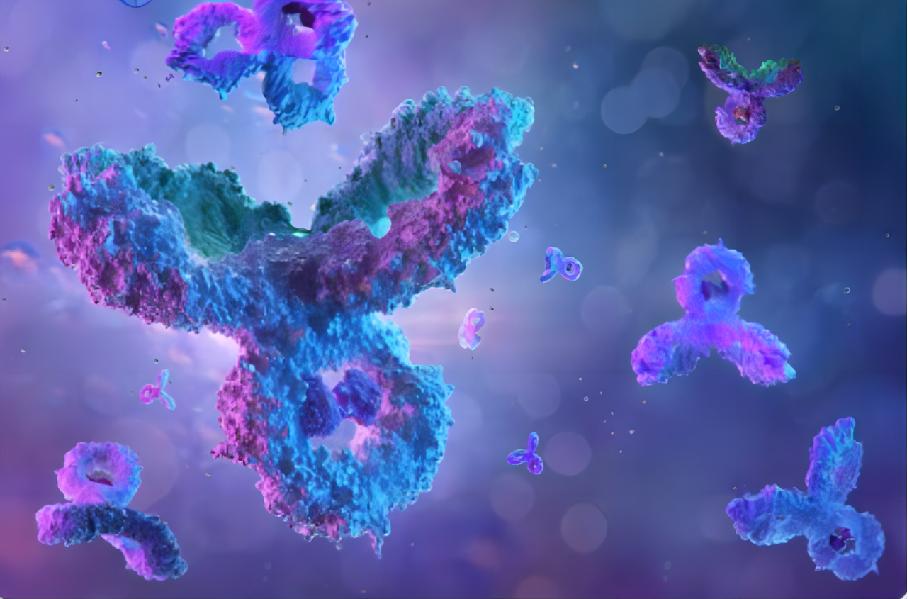Size Variant Analysis of Antibody Drug Conjugates
Online Inquiry
Size variants (aggregates, particles, fragments) are important quality attributes that can directly affect the efficacy or safety of antibody drug conjugates (ADCs). Therefore, both batch release testing and stability monitoring of ADCs require accurate and robust methods to measure the extent of aggregation and fragmentation. Creative Proteomics leverages our expertise in antibody drug conjugates characterization and advanced analytical techniques to help clients accurately analyze and quantify size variants of ADCs. Our comprehensive analytical services help researchers and pharmaceutical manufacturers optimize the ADCs development process to ensure product quality, safety and efficacy. We are committed to providing reliable and accurate analytical data to support regulatory submissions and accelerate the development and approval process of ADCs.

Introduction of Size Variant
Aggregation, which occurs when two or more monomeric units associate with each other to form higher oligomeric structures with sizes ranging from tens of nanometers to hundreds of microns, is the most common pathway of physical degradation of proteins. ADCs in particular are more prone to aggregation than the parent antibody, primarily due to the presence of drug/linker molecules which impart more hydrophobicity around the local surface of the conjugation sites. Additionally, the drug conjugation may also have a direct effect on the total surface charge, as well as thermostability of proteins. Overall, these factors either individually or in combination influence the aggregation propensity of ADCs.
Monitoring size variants is important. The reasons for paying special attention to size variants in the characterization of key quality attributes of ADCs include the following:
- In many cases, fragmentation of proteins may trigger or aggravate the process of aggregation.
- The presence of high molecular weight variants (i.e., aggregates) in an ADC has the potential to elicit the production of an anti-therapeutic antibody (ATA) response, and may affect pharmacokinetics or potency (by fragments), when drug product is injected into the blood stream.
- The presence of size variants can compromise the purity and shelf life of the drug product.
ADCs Size Variants Characterization Methods at Creative Proteomics
Various analytical techniques such as Size-exclusion chromatography (SEC), capillary electrophoresis sodium dodecyl sulfate (CE-SDS), SEC with multi-angle static light scattering, dynamic light scattering, and particle measurements (e.g., light obscuration, Flowcam, MFI) are used in the labs of Creative Proteomics for characterization and control of ADCs size variants. Our experienced team of experts is familiar with the principles, advantages and disadvantages of each technique. We have the flexibility to customize characterization solutions and detection techniques according to the characteristics of the samples and the stage of development.
| Methods |
Description |
Advantages |
| Size-exclusion chromatography (SEC) |
SEC is a widely used technique for ADC size variant analysis. It separates molecules based on their size, allowing the identification and quantification of aggregate and fragment variants. |
- Relative quantification.
- Used for batch comparisons.
|
| Capillary electrophoresis sodium dodecyl sulfate (CE-SDS) |
CE-SDS has been used as an orthogonal separation technique for the characterization of size variants in ADCs to distinguish between the LMW species in the range of ∼10–150 kDa. |
- Higher resolution.
- Providing critical information regarding the nature of aggregates/fragments with regard to the presence of unexpected disulfide linkages and any nonreducible covalent degradation product.
|
| SEC with multi-angle static light scattering (SEC-MALS) |
SEC-MALS uses SEC coupled with a MALS detector to measure the absolute molecular weight of ADCs and their size variants. |
- Accurately determine molecular weight.
- Estimation of aggregates, fragments and conjugation levels.
|
| Dynamic light scattering (DLS) |
DLS measures the intensity fluctuations of scattered light to calculate the hydrodynamic radius of particles in solution. |
- DLS provides information on the size distribution and polydispersity of ADCs and their variants.
|
Advantages of Our Size Variant Analysis Services
- Comprehensive analytical services enable us to accurately identify and characterize a variety of size variants in ADCs, including aggregates, fragments and impurities.
- A wide range of advanced analytical methods with high precision and a highly skilled team ensure reliable and reproducible results.
- Detailed reports and expert interpretation and provide guidance for the decision-making process for ADCs development and quality control.
Creative Proteomics' streamlined processes and dedicated team allow us to provide fast turnaround times without compromising analytical quality. Contact us to learn more about our service and we will be happy to serve you.

